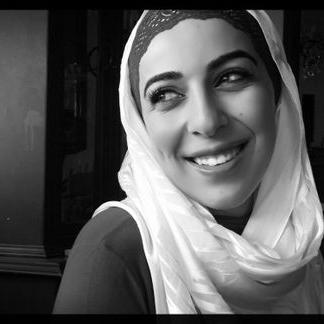From BESA Center Perspectives Paper No. 352, August 2, 2016, by Efraim Inbar:
The West should seek the further weakening of Islamic State, but not its destruction. A weak but functioning IS can undermine the appeal of the caliphate among radical Muslims; keep bad actors focused on one another rather than on Western targets; and hamper Iran’s quest for regional hegemony.
US Defense Secretary Ashton Carter recently gathered defense ministers from allied nations to plan what officials hope will be the decisive stage in the campaign to eradicate the Islamic State (IS) organization. This is a strategic mistake.
IS, a radical Islamist group, has killed thousands of people since it declared an Islamic caliphate in June 2014, with the Syrian city of Raqqa as its de facto capital. It captured tremendous international attention by swiftly conquering large swaths of land and by releasing gruesome pictures of beheadings and other means of execution.
But IS is primarily successful where there is a political void. Although the offensives in Syria and Iraq showed IS’s tactical capabilities, they were directed against failed states with weakened militaries. On occasions when the poorly trained IS troops have met well-organized opposition, even that of non-state entities like the Kurdish militias, the group’s performance has been less convincing. When greater military pressure was applied and Turkish support dwindled, IS went into retreat.
It is true that IS has ignited immense passion among many young and frustrated Muslims all over the world, and the caliphate idea holds great appeal among believers. But the relevant question is what can IS do, particularly in its current situation? The terrorist activities for which it recently took responsibility were perpetrated mostly by lone wolves who declared their allegiance to IS; they were not directed from Raqqa. On its own, IS is capable of only limited damage.
A weak IS is, counterintuitively, preferable to a destroyed IS. IS is a magnet for radicalized Muslims in countries throughout the world. These volunteers are easier targets to identify, saving intelligence work. They acquire destructive skills in the fields of Syria and Iraq that are of undoubted concern if they return home, but some of them acquire
shaheed status while still away - a blessing for their home countries. If IS is fully defeated, more of these people are likely to come home and cause trouble.
If IS loses control over its territory, the energies that went into protecting and governing a state will be directed toward organizing more terrorist attacks beyond its borders. The collapse of IS will produce a terrorist diaspora that might further radicalize Muslim immigrants in the West. Most counter-terrorism agencies understand this danger. Prolonging the life of IS probably assures the deaths of more Muslim extremists at the hands of other bad guys in the Middle East, and is likely to spare the West several terrorist attacks.
Moreover, a weak and lingering IS could undermine the attraction of the caliphate idea. A dysfunctional and embattled political entity is more conducive to the disillusionment of Muslim adherents of a caliphate in our times than an IS destroyed by a mighty America-led coalition. The latter scenario perfectly fits the narrative of continuous and perfidious efforts on the part of the West to destroy Islam, which feeds radical Muslim hatred for everything the West stands for.
The continuing existence of IS serves a strategic purpose. Why help the brutal Assad regime win the Syrian civil war? Many radical Islamists in the opposition forces, i.e., Al Nusra and its offshoots, might find other arenas in which to operate closer to Paris and Berlin. Is it in the West’s interests to strengthen the Russian grip on Syria and bolster its influence in the Middle East? Is enhancing Iranian control of Iraq congruent with American objectives in that country? Only the strategic folly that currently prevails in Washington can consider it a positive to enhance the power of the Moscow-Tehran-Damascus axis by cooperating with Russia against IS.
Furthermore, Hizballah – a radical Shiite anti-Western organization subservient to Iran – is being seriously taxed by the fight against IS, a state of affairs that suits Western interests. A Hizballah no longer involved in the Syrian civil war might engage once again in the taking of western hostages and other terrorist acts in Europe.
The Western distaste for IS brutality and immorality should not obfuscate strategic clarity. IS are truly bad guys, but few of their opponents are much better. Allowing bad guys to kill bad guys sounds very cynical, but it is useful and even moral to do so if it keeps the bad guys busy and less able to harm the good guys. The Hobbesian reality of the Middle East does not always present a neat moral choice.
The West yearns for stability, and holds out a naive hope that the military defeat of IS will be instrumental in reaching that goal. But stability is not a value in and of itself. It is desirable only if it serves our interests. The defeat of IS would encourage Iranian hegemony in the region, buttress Russia’s role, and prolong Assad’s tyranny. Tehran, Moscow, and Damascus do not share our democratic values and have little inclination to help America and the West.
Moreover, instability and crises sometimes contain portents of positive change. Unfortunately, the Obama administration fails to see that its main enemy is Iran. The Obama administration has inflated the threat from IS in order to legitimize Iran as a “responsible” actor that will, supposedly, fight IS in the Middle East. This was part of the Obama administration’s rationale for its nuclear deal with Iran and central to its “legacy,” which is likely to be ill-remembered.
The American administration does not appear capable of recognizing the fact that IS can be a useful tool in undermining Tehran’s ambitious plan for domination of the Middle East.


![Cory Bernardi: ‘While some want to abolish [18C], a good start would be to remove the words ‘offend’ and ‘insult’ from the act.’](https://i.guim.co.uk/img/media/0e5bdd1ad8fe77f5fd331af556088fc4acdf7502/0_233_4212_2527/master/4212.jpg?w=620&q=55&auto=format&usm=12&fit=max&s=bd8979c73ae485c9cda591c8ce4b2ac0)






